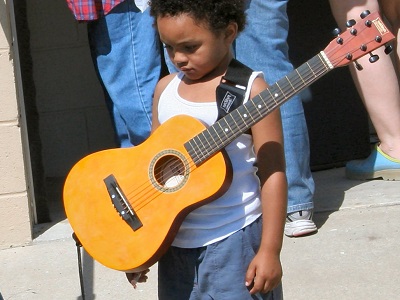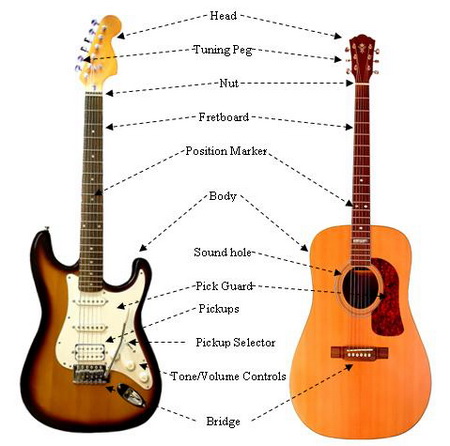What Is the Right Age To Kickstart Children Guitar Lessons?
 Children are extremely impressionable. That being said, we have to be careful as to the things we expose them to at early ages. You want your children to grow up with values and skills, yet you also want to avoid overwhelming them.
Children are extremely impressionable. That being said, we have to be careful as to the things we expose them to at early ages. You want your children to grow up with values and skills, yet you also want to avoid overwhelming them.
It’s a thin line, and when you are a musician, it is hard to see where the line starts and where it ends when it comes to music for your child.
Should you wait until they are older, or allow them to start at a very early age? Should you wait until they show their own interest or should you have them try and then form their opinion from there? What is the right age for children’s guitar lessons?
Never Force Your Child To Learn
These are all very good questions when it comes to your child and guitar lessons, but before you evaluate those questions, there is one important question that you must ask yourself; am I doing this for me or for my child?
While the saying ‘you can lead a horse to water but you can’t make it drink’ is true, many parents overlook that aspect when it comes down to their own personal loves and hobbies. If your child hasn’t directly expressed an interest in the instrument, chances are they don’t want to play it.
Many parents make the mistake of forcing their hobbies on to their children. Not only is this bad for your child as it teaches them to cave under pressure, but it is also bad for your relationship with your child.
While you may not see it yourself, remember we were all children once, and when our parents made us do things we hated, we complained to our friends, and although we hid it, inside we were angry at them. Don’t allow yourself to talk yourself into forcing a hobby on your child, because as stated earlier if they are interested, they will display their interest.
No Age Bracket
Now as far as age goes, there is no proper age to receive guitar lessons for kids; as long as your child can speak, hold up the guitar, and learn, then they are old enough for lessons, whether that is at age five, seven, or nine. Another key thing with an instrument is communication.
You want to talk to your child about their lessons, ask them how they like them, and what they have learned. Show them that their interests and choices matter. Every once in a while, be sure to listen in on your child playing, take note of their progress, and give them encouragement.
Chances are, when it gets hard, they will want to quit. This means you need to be their stone. If it was their choice to try guitar to begin with, don’t allow them to quit. Let them know those good things take hard work. If your child is struggling, sit down with them while they are practicing, and even if you aren’t a musician yourself, do your best to help them and encourage them.
Starting music young is great, but only if your child is actually interested. While we play large parts in their lives, dictator shouldn’t be one of those roles. Let your child express themselves how they see fit.
Are You Looking For Great Guitar Lessons For Children?
The Learn And Master Guitar Homeschool course contains step-by-step lessons designed to teach children how to play the guitar. With a carefully designed 2-year curriculum, this course is perfect for parents who want to homeschool their kids even if they don’t know how to play the guitar.







Leave A Comment